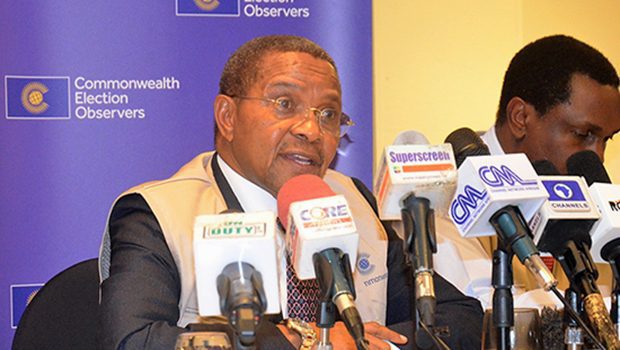In its provisional report released on Monday, the Commonwealth called on political parties to reject violence, while also commending the people of Nigeria for their commitment to democracy, including positive steps taken for women and youth participation in politics.
“Election-related violence and loss of life, which occurred in a number of places, is deeply troubling. Nigeria can do better. Violence has no place in a modern democracy,” stated Chairperson Jakaya Kikwete, former President of Tanzania, noting that several reports of violence were received by the group.
“Those responsible should be held accountable. We encourage all political parties to honour their commitments in the National Peace Accord and reject violence” he said.
The group welcomed the signing of the national peace accord, and noted that while the campaign environment was tense and divisive, overall, “fundamental freedoms of association, expression, assembly and movement were generally respected”.
On polling day, the Commonwealth said its observers witnessed a number of key challenges, including delays in the distribution of election materials, late opening of polling units, technical problems with Smart Card Readers, and inconsistency in polling procedures.
The group also noted that 11.2 million Permanent Voter Cards (required for voting) out of 84 million were not collected.
“Consequently, more than 13 percent of all registered voters could not vote” it said.
Notwithstanding the challenges, the Commonwealth said its observers were impressed by the hard work and dedication of polling staff.
They commended the youth of Nigeria, especially the National Youth Service Corps, for their invaluable contribution to the electoral process.
The Commonwealth Group observed, followed the pre-election campaign, voting, counting and collation processes.
Its full assessment on the electoral process as a whole, setting out its recommendations in greater detail, will be submitted to the Commonwealth Secretary-General at a later stage.


